This morning it was announced that Sainsbury’s and Asda had abandoned their plans for a merger after a crushing final report by the competition authorities. The report concluded the retailer’s plans would lead to rising prices and reduced quality for shoppers across the UK. Here’s what the analysts think:
John Armour, NFU Scotland
“We welcome this announcement. The grocery market is already dominated by a few, very large operators and further consolidation would have had ramifications for all parts of the food supply chain, including consumers, farmers and crofters. Importantly, several consumer groups shared our concerns over the impact that the proposed merger could have had.
“Media reports around this merger featured headlines that focussed on plans to ‘slash prices’ suggesting that such a consolidation of market share would be used to increase price pressure further down the supply chain. Farmers and growers are often price takers and that any price pressures on fresh food, ultimately, are felt in primary food production.”
Roger Barron, Paul Hastings
“Given the strength and clarity of the initial findings, it comes as no surprise to anyone that the CMA have decided to block this deal.
“As an M&A practitioner you rely on the antitrust teams to assess whether or not a deal can be done. It does seem incredible that on this occasion the parties’ advisers seem to have got it so wrong, such that the only remedy the CMA felt it had available to it was to block the transaction in its entirety.
“The parties have said they don’t intend to appeal the decision - that is surely either because they don’t believe their arguments will succeed at the Competition Appeal Tribunal, or they no longer want to pursue the deal commercially, or maybe both.”
Clive Black, Shore Capital
“At the heart of the proposed deal’s problems is an incorrect and over-extrapolation of the decision by the CMA, under a different managerial regime, to unconditionally clear the Tesco-Booker merger. We felt at the time that it was a surprising and poor decision. However, rather than analysing matters with a sense of rationality and perspective, Sainsbury and Asda seem to have decided that 1+1 can equal 10.
“From this mis-calculation, the merger parties did not assess the change of the guard at the CMA, most particularly the new Chair, Andrew Tyrie. Furthermore, in not being a merger of two domestically listed entities the justification of the proposal involved much asymmetry and talking to the galleries.
“The asymmetry revolved around the fact that Sainsbury and Asda revealed that they are struggling to compete against the limited assortment supermarkets (and the likes of Amazon, even though the latter barely registers on the radar of British supermarket activity, and yet their plight should be accepted by the CMA when the ramifications of the deal for the supply chain, which seemed to go through a volte face following the provisional findings, should not.
“In terms of the galleries, well cutting prices by 10% on everyday lines was a phrase that we highlighted at the start of this process as one littered with difficulties and so it proved to pass; the scramble to bring some rigour and justification to it was somewhat embarrassing and unedifying, reiterating the ditching of protections for the domestic supply chain from the merger only underscored shallowness of thought.
“All of which brings one to the matter of arrogance. The proposed merger was high octane stuff but both parties took on the regulator as if a debt distressed hedge fund seeking to play by their rules not those of the establishment. The provisional findings of the CMA did surprise us to some degree but only with its effective evisceration of the investment thesis of Sainsbury and Asda.
“Frustration on behalf of Sainsbury in particular was understandable but their market release, public statements and subsequent legal documentation following the provisional findings appear impetuous and lacking balance; arrogance and naivety.
“Accordingly, with a dead merger we sense that there will be much commentary around the future of Sainsbury’s CEO, Mike Coupe, who is likely to be singing a different tune this day. We are not amongst those that may clamour for his departure. Mr Coupe was bold in seeking this merger and should be praised for this ambition and idea generation. Additionally, given the poor trading performance of Sainsbury’s supermarkets, the core of the Group, it would hardly be helpful to our minds to change the leader at this juncture; the plight of the Tories comes to mind.
“Rather, we believe that there should be serious questions to answer for the Sainsbury’s Board, in particular its non-executive directors and new chairman.”
Nick Bubb, independent analyst
“Well, there is no sign of Sainsbury’s CEO, Mike Coupe, falling on his sword, after the wretched CMA decided that the Sainsbury’s/Asda merger should be blocked completely, perhaps because there is some sympathy for his situation, as who would have thought the CMA would be so stupid as to ignore all the arguments about price competition and not even suggest a big chunk of store disposals. Whether Walmart will now try and sell Asda to private equity instead is unclear (the statement by Walmart International boss, Judith McKenna, suggests they will simply keep and support it) and how long Mike Coupe will remain as CEO of Sainsbury’s is also unclear, with much depending on how convincing he is about the group’s revised strategy at the final results presentation on Wednesday next week.
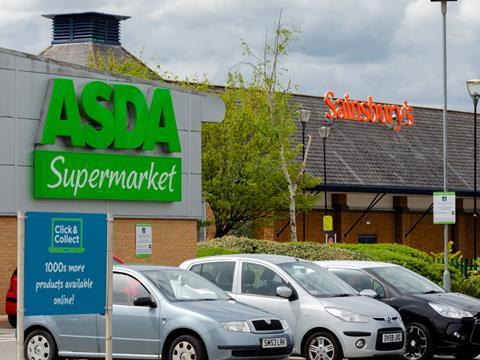
Nick Carroll, Mintel
“Today’s news from the CMA hardly comes as a surprise after the damning initial findings. Although both sides have now admitted defeat, Sainsbury’s maintains that in a highly competitive marketplace the merger would give the new group better buying power and enable them to lower prices for grocery shoppers, 39% of which would have spent the most at the combined chain in a typical month.
“The CMA argues that it would reduce competition in too many areas, from stores to online, and that would ultimately allow for the potential for the new group to raise prices. The trouble with the CMA’s argument is that prices in the 1,500 fastest moving lines are currently being set by Aldi and Lidl and that the development of online retailing means that there is far greater transparency in prices and that has led, on the whole, to a single price file for each chain around the country. It is hard to see in the current market, given the continued expansion plans of the discounters, how any of the leading players could afford to be anything other than price-competitive. The CMA cannot judge the deal based on short term gains, however well meaning, and must rule based on the longer term competitive situation.
“We’ve had our doubts about this merger from the start for different reasons. We think that trying to bring together two very different businesses would ultimately damage both. The better buying power argument just seems too simplistic, and overlooks the distinct offering and customer profile of each business. Added to that is that fact that Sainsbury’s is by far the worst performer of the majors at the moment. Whether this is because management time has been diverted away from day-to-day operations to the merger is impossible to tell, but the fact is Sainsbury’s has had to invest significant time and money (£17 million at the half year in November) into a deal that is no longer going ahead.
“So we think this decision is good news for Sainsbury’s. It has been prevented from a merger which would probably have significantly damaged its business. Asda is one of the best performers in the market at the moment, but there is now major uncertainty over its future. Walmart has signalled that it wants to exit the business, in line with its wider international strategy, and that makes sense since the UK market is highly competitive and has minimal growth potential, but it is very hard to see who would want to buy it now, at least in the retail space.”
Prof Ratula Chakraborty, University of East Anglia
“UK shoppers should rejoice at the CMA’s decision to block the proposed merger between Sainsbury’s and Asda. This merger would have reduced competition, resulting in higher prices and less choice. Consumers can now expect the supermarket wars to resume with full force, as the retailers now know that they cannot avoid competition by hiding behind anti-competitive alliances and tie-ups.
“The CMA decision has ensured that the only way to win in this market is by competing head-to-head to give consumers genuine better value for money rather than have giant monopolies stitching up the market and pretending to compete through illusory marketing gimmicks.
“Serious questions must be asked about the folly of the senior management of Sainsbury’s and Asda to pursue a merger that had no chance of being approved by the CMA. Shareholders should be very angry at the time and money wasted on this hopeless venture.
“Both firms have been poorly advised and lost the better part of two years’ effort on an unattainable merger rather than focusing on investing in their core business to improve their competitiveness. Now the firms need to unscramble their plans and chart how they are going to survive in the looming supermarket war.”
Bev Clarkson, Unite
“Sainsbury’s workers will welcome news that the proposed merger with Asda is off.
“The merger and the possibility of store closures and job losses as a result has been unsettling, causing great uncertainty at a time when the supermarket has imposed changes to contracts that have left many workers out of pocket.
“Staff will now look to senior management to give them certainty so they can concentrate on serving customers.”
Richard Curry, Rapleys
“Sainsbury’s was always facing an uphill battle to sell the Asda deal to the CMA. When the merger proposal came to light it took everyone by surprise given the sheer ambition of the project. But over time reality has started to bite.
“Indeed, to onlookers it appeared from an early stage, and certainly following publication of the CMA’s phase 1 report, that that the writing was on the wall for the deal.
“When you look at the combination of the facts on the ground in the supermarket industry and role and processes of the CMA the deal was never going to be just waved through, or at least not without a significant sacrifice of stores by one or either of the parties which would likely have made the deal unpalatable.
“The problem Sainsbury’s and Asda faced is that there is a clear lack of credible competition for the CMA to turn to, and fewer still who would be interested in the stores that would have needed to have been disposed of. Particularly when you factor in the fuel retail element, the only two alternatives that offer the same product range and shopping experience are Tesco and Morrisons – who are unlikely to be interested in enough of the large format stores which might have made a difference to the CMA.
“Walmart will now be actively reviewing their strategy as they clearly will still want to offload Asda. There will likely be many suitors waiting in the wings, from private equity to retail joint ventures. The Asda brand remains strong and the stores, while many will require updating, will be a tempting prospect for many investors who may, for instance, seek to rationalise the portfolio and cut and splice the space to generate maximum value. There have been plenty of retailers who have used the media interest in the proposed merger to push themselves forward as ready to take advantage should stores come on to the open market or if investor landlords are seeking viable retail tenants for ex-Asda stores.
“At the same time, people are still waiting to see what Amazon’s next move in the UK market will be. With the Whole Foods business, and the recent partnership with Casino in Europe, food retail is an area of interest for them. It would be ironic indeed were Amazon to end up buying some or all of the Asda portfolio given Walmart’s exit from the UK to focus on the US is almost entirely driven by a desire to defend against Amazon on home soil.”
Ian Giles, Norton Rose Fulbright
“The CMA have listened to the complaints about their provisional findings in February, but decided that the evidence supports their serious concerns about this deal. This is a controversial decision in competition law circles as it suggests a higher bar than had been the case in previous retail mergers. The parties perhaps underestimated how the scale of this deal, and the CMA’s focus on consumer markets, meant they would face such serious obstacles in securing approval. They had banked on arguments around discounters and online sales offsetting concerns
“The shifting competition policy position is also unlikely to have helped the parties’ prospects of getting the deal cleared. CMA Chair, Lord Tyrie, proposed a range of reforms to improve the UK competition regime in a letter to the Business Secretary Greg Clark MP in March, including a much stronger focus on protecting consumers from detriment. In that broader policy context and having already identified concerns about harm to millions of consumers, it was all the more unlikely that the CMA would clear the deal, as has proven to be the case.”
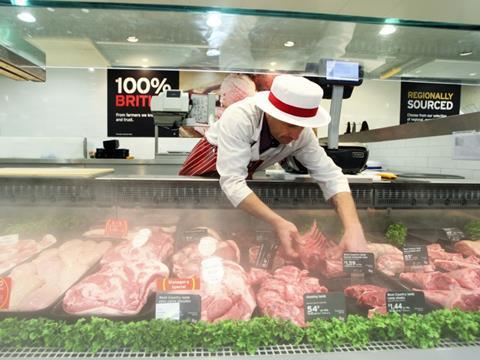
Vicki Hird, Sustain
“This is the right result and the CMA should be congratulated for a thorough investigation.
“Further mergers in a highly concentrated sector would mean less choice for customers. For suppliers like farmers and growers, here and overseas, this merger could have been disastrous meaning even lower farmgate prices and fewer market options. when they are already the most squeezed part of the supply chain.
”The farmers, farm workers, environment and livestock would have suffered from the price cuts resulting from the merger. ”
Paddy Lillis, Usdaw
“The CMA’s blocking of the proposed Sainsbury’s and Asda merger has brought to an end a period of uncertainty for staff, who have been concerned by speculation of store closures. We will continue to work with Sainsbury’s, Argos and Asda to grow the businesses and secure our members jobs.
“Usdaw remains deeply concerned about the operation of the CMA and we renew our call on Government to change setup to ensure that workers voices are fully heard and represented in future investigations.”
Sophie Lund-Yates, Hargreaves Lansdown
“The Sainsbury’s/Asda saga has been playing out for some time, but today’s announcement means the curtain has officially dropped. The CMA’s decision doesn’t come as a huge surprise, after its initial ruling demanded severe compromises if the deal was to be approved - one such suggestion was selling one of the brands altogether. Sainsbury’s response that it was only prepared to sell a small number of stores simply wasn’t enough to appease the competition regulator.
“This is undoubtedly a blow to Sainsbury’s, which was relying on the merger to rejuvenate what’s been a paltry performance of late. Sainsbury’s position in the middle of the pack makes for tough going as the supermarket space is a crowded one, and the group faces fierce competition from above and below. That’s partly why margins have been hovering around the 2.5% mark, and the deal would have acted as a catalyst to get margins moving. To make things worse, there’s now scope for another buyer to invest in Asda, which would result in the chain becoming a more active competitor for Sainsbury’s.
“What’s been interesting about the developments in this now dud-deal, is Sainsbury’s claims that the CMA’s findings have not only been disappointing, but factually incorrect. Sainsbury’s CEO Mike Coupe remains adamant that should the merger have been allowed to take place, customers would have been better off – a claim the CMA could not substantiate. Either way, with both Sainsbury’s and Asda officially agreeing to down tools, we don’t expect any further war of words, it’s now a case of back to the drawing board for Sainsbury’s.”
Bruno Monteyne, Bernstein
“For Sainsbury’s the focus will be on a torrent of challenging questions: If they felt they needed the scale from Asda, what’s next? Will they do the 10% price cut on daily essentials, but without the Asda merger to fund it? How bad can Argos margins be & how long will it last (as the high street keeps suffering)? How long will the bank absorb cash rather than return cash to the parent company? How long can their grocery stores remain the weakest trading stores?
“For Asda, it is back to business as usual. Their turnaround strategy has started to work and they are trading closely in line with Tesco. Contrary to what some commentators think, we do not think that Walmart is in rush to dispose of Asda. Asda was never considered a problem business (it generated profits, cash and talented execs for years), but the merger seemed a unique opportunity. They will go back to good retailing.”
Patrick O’Brien, Global Data
“The CMA’s decision to block the Sainsbury’s/Asda merger puts the heat on Sainsbury’s CEO Mike Coupe. Whatever the rights or wrongs of the CMA’s decision, he appears to have wasted a year chasing an impossible dream while its competitors took full advantage of its distraction. Its results over the last year have been poor, with store standards falling noticeably, and it must now refocus on retail basics rather than chase another big acquisition.
“One of the key mistakes Coupe made was in failing to offer any assurances on price cuts until the CMA’s devastating provisional findings in February: it built the rationale for the merger on the rather vague notion that it would reduce prices by 10% by putting pressure on major suppliers, though it didn’t make it clear how many products this would include. It only made some assurances of audited price investment later, but this might have had more sway if it had offered them at the start.
“The confidence Coupe placed in getting the deal past the CMA in light of its previous – generous – decision to allow Tesco to buy Booker looks like a bad misjudgement now. Mike Coupe may feel hard done by, but the CMA made clear that the Tesco-Booker deal was passed because it considered the acquisition to be a vertical one, by a retailer of a wholesaler, and so viewed that the combination did not significantly damage the competitiveness of either market. The rights and wrongs of that decision are debateable but it looks difficult for Coupe to argue that the CMA’s decision then is in direct contradiction of its decision regarding Asda/Sainsbury’s now.
“Asda’s performance does not give as much cause for concern as Sainsbury’s, which itself puts more pressure on Coupe. Why has Asda been able to manage the distraction of the merger so much better?
“We do not believe Walmart will want to keep Asda as it is now, and may look to sell Asda to other suitors, but it would look unlikely that other major players in the UK would consider it, given the strictness the CMA has displayed. It opens the possibility of private equity or floating the business, or a foreign retailer entering the market. Amazon will always be speculated about, but we do not believe that taking on a major physical food presence in the UK fits with its strategy, despite the Whole Foods deal in the US, which was a distressed (i.e. cheap) business, more focussed on affluent customers.”
Tim Rycroft, FDF
“Today’s CMA decision is the only logical outcome. This proposed merger was a bad deal for consumers and for food and drink manufacturers. Given the evidence provided by FDF members (and others) of substantial competition harms, it is hard to see how the CMA could have come to any other decision. We are pleased that the concerns of food and drink manufacturers have been heard and acted upon.”
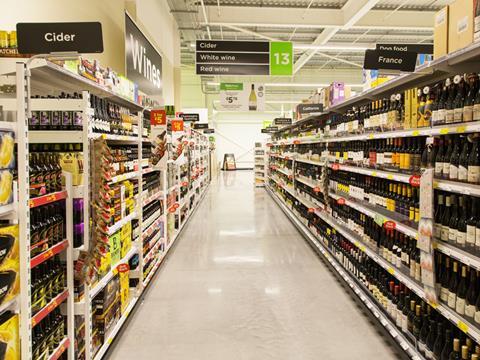
Catherine Shuttleworth, Savvy
“Since the CMA dropped their unexpected announcement in February with their interim thoughts, a great deal has happened – the M&S deal with Ocado is a significant change to the UK grocery shoppers competitive set, the discounters have continued to increase their share of the UK grocery market to new heights, the Co-op with its alternative proposition and smaller shops have made significant share gains and the mighty Tesco have recorded record profits as the benefits to their waved through merger with Booker filter through with a big bang on to the bottom line.
“Even if all the CMA has done since February was sit in their offices in London they couldn’t have failed to realise that the UK grocery market has never ever been more competitive.
“But so far there’s been little evidence of the reality of UK shopping habits in their findings.
“The comments from Stuart McIntosh of the CMA this morning - that it would be difficult to track prices post the proposed merger - is completely unbelievable. It has never been easier to track supermarket prices. Additionally, Sainsbury had committed to a transparent audit of pricing by a third party post any merger. The more we hear from the CMA the more we should be concerned that they are not working in the best interests of consumers and clearly do not understand the market dynamics of the UK grocery sector.
”They say that they have looked at the changed dynamic of the marketplace which makes it all the more surprising that they really think prices would go up. So back to the drawing board for both parties - with neither side sounding happy at the outcome. Let’s now see what the law of unintended consequences could bring to the grocery market.”








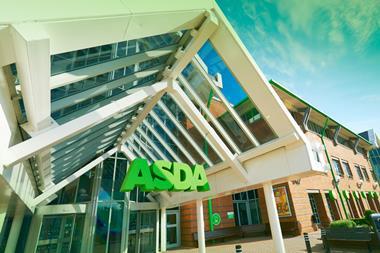

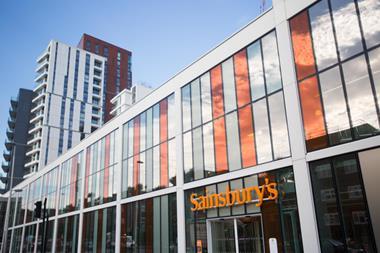
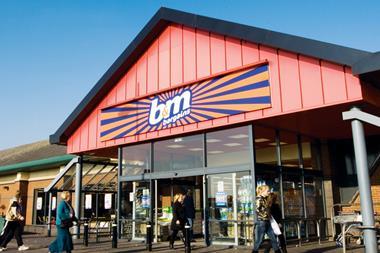








No comments yet